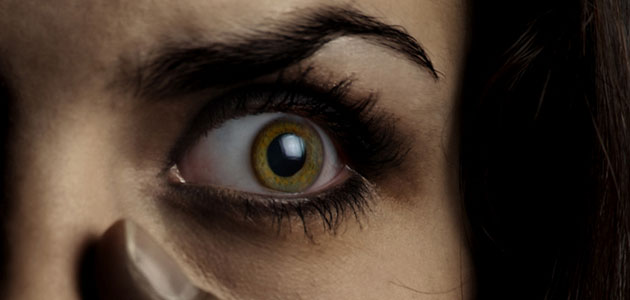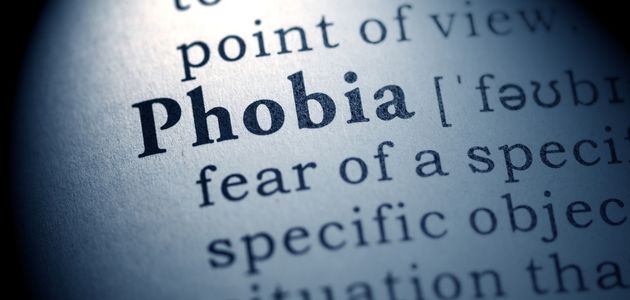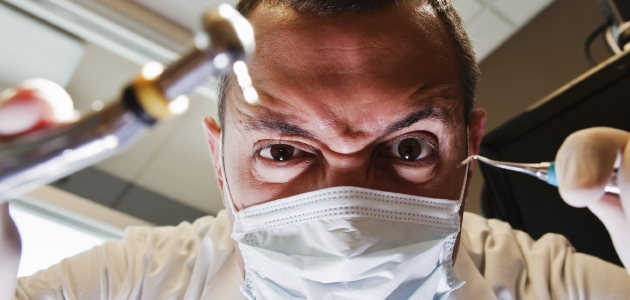DO YOU SUFFER FROM FEAR OF THE DENTIST?
your solitude in the face of your problem is only apparent because YOUR many questions have the same answers for many people who also suffer
What are the therapies for treating odontophobia?
The place of "fear of the dentist" in your dental care.
Since the 2000s, dentists like our Head of the Dental Department at Smile Designer, Dr. Jerome Weinman, have integrated in all their treatment of patients for oral surgery (implantology and periodontology), dental prosthesis and smile aesthetics, the specific problem of patients in medical wandering, because of their “stomatophobia” or the “fear of the dentist”.
The many years of experience in the field of dental sedation for surgical management have allowed Dr. Jerome Weinman and the group of anesthesiologists who follow his practice to adapt intravenous sedation protocols, normally used for general medical surgery, to the specific protocols of dental care in the office.
His practice has expanded from France to Switzerland.
At the beginning of the reflection on the subject of sedation techniques by anaesthetists, it was only a question of classical tools to treat dental problems whose therapies came under oral surgery.
Then, it was necessary to provide a specific practical response for remote or foreign patients who needed comfort during complex and time-consuming dental care. They were all reluctant to seek treatment because of justified apprehension about a large volume of dental care, even if compacted. A certain diffuse “fear of the dentist” had to be erased by sedations adapted to long dental care, of all natures and in all disciplines of oral surgery, but also of classical dentistry.
Then, over time, the demand for IV sedation has grown enormously under the adjurations of odontophobic people.


The issue of paralyzing fear of the dentist has become a topic of discussion in its own right
It appears that the management of stomatophobia is historically poorly managed in highly medicalized Western Europe, for reasons that are not well defined.
We realized that many people had no access to medical care and were wandering because their stomatophobia problem was not fully taken into account in their treatment by general practitioners. These general practices, despite all the attention given to patients, are poorly equipped to treat these people. Since, the most radical and effective way to do this is to sedate them, with intravenous anesthesia techniques, performed by anesthesiologists.
These techniques are described in the chapter “YOUR DENTAL CARE UNDER IV MEDIATION” click here.
They are performed exclusively by anesthesiologists trained in these practices in the dental office.
Odontophobia: an illness as serious as it is little recognized
The worlds of science and medicine have evolved enormously over the past decades. The field of dentistry was no exception. In particular, thanks to the significant qualitative leaps made in the field of “digitized medical imaging” and “digitized design and manufacture of dental prostheses”.
The world of dentistry has also moved closer to that of general medicine. However, the first medical practice commonly accepted at the beginning of management is exploration and diagnosis. An initial medical approach that is becoming more and more widespread during dental care.
This evaluation naturally begins in the areas of dental techniques themselves, but is increasingly extending to the area of to the field of the relationship with the patient.
The practitioners of dentistry attach more and more importance to the comfort and well-being of the patient. The treatments are much more comfortable and less painful than they used to be.
However, why is it that despite these developments in the dental office, the “fear of the dentist” is still very much a part of the mental activity of people who have to undergo dental treatment?
For many people, going to the dentist is a dreaded, even insurmountable ordeal, even at the cost of immense dental pain.
This phenomenon affects all segments of the population, regardless of age, gender or social background. This can be a real barrier to dental care for a significant portion of patients.
This often leads them to postpone or even neglect their visit to the dental office, to the detriment of their oral health but also their general physical and psychological health.
The WHO considers “phobia” to be a psychiatric condition. Among the most common phobias that she distinguishes in dentistry: the phobia of blood or “hemophobia”, needles or “achmophobia” and of course the phobia of the dentist which is considered as a specific phobia named “odontophobia” or “stomatophobia”. (WHO, Oct. 28, 2020).
It is therefore important to detect this type of patient and improve their management.


Fear of the dentist becomes a central element in the management of people during dental care
There is a beginning of taking into account the restoration of the physical but also psychological health of stomatophobic patients.
For many years now, various hospital departments in Europe have begun to catch up on the management of patients with stomatophobia. In particular, but not exhaustively, we can mention
- the initiatives of the
Mondor University Hospital in the Paris region
, - those of the CHU of Nice (of which we attach a very interesting
doctoral thesis on this theme
) - or those of Dr. Michael Leu, a German doctor, a precursor in this field with a well-defined protocol in three steps
- The WHO even considers it to be a psychiatric pathology. Among the most common phobias, we distinguish the phobia of blood, diseases and needles. The phobia of the dentist is considered as a specific phobia named odontophobia.28 Oct. 2020.
But why then does the phobia of the dentist, or simply the fear of the dentist or the apprehension of dental care, become one of the central elements of the management of people wishing to consult to treat their dental, carious or periodontal pathologies?
In spite of all the care and progress that dental professionals apply to their patients, it appears that the apprehension of dental care, the fear of the dentist and even the phobia of dental care, called stomatophobia or odontophobia, is deeply rooted in the collective unconscious of the population, including that of highly medicalized countries.
Moreover, this fear is renewed with each generation and does not seem to dry up. So, apart from the “ugly dentists” who are the support of all the fantasized or real fears, is there anything else?
Stomatophobia affects people from all walks of life, all genders and all backgrounds. According to the observations of practitioners reflecting on this topic, including Dr. Jerome Weinman, the etiology of this ailment is based on two categories of causes:
- First of all, there are causes intrinsic to dental practices, often illustrated by traumas experienced in childhood (but not only), following abruptness – or even mistreatment – committed by indelicate or too hasty colleagues.
This subject has long been considered by some as taboo. For our part, we think that it must be treated scientifically, even if for several years the techniques and the psychological approach of the colleagues have become much more human.
- Secondly, there are causes extrinsic to the world of dentistry which are related to the experience of “suffering” in the broadest sense. This includes all forms of abuse or accidents and assaults in all their forms, whether physical or psychological.
These bad experiences are much more numerous than we can imagine!
Due to a mental process of repression, many people are uncomfortable in a dental chair because the dentist is technically almost straddling the patient. The latter is lying down and submissive, with his mouth open, undergoing treatments that are in the collective consciousness assimilated to the torture of TV series!
For many, buried conscious or unconscious memories make them fragile and extremely anxious in case of dental care.
Do you feel alone and misunderstood when faced with your fear of the dentist?
In the industrialized countries of Europe, 10 to 12% of the population is known to have a pronounced phobia of dental treatment.
We note, with the hindsight of experience, that whatever the origins of the disease, all these patients have in common the feeling of being unique in their kind and consequently totally abandoned, or even excluded from society and medical care. We have tried, through numerous Internet communications, to explain these problems.
Many colleagues have tried to classify stomatophobic patients by severity gradient, using tests all based on “questions and answers”.
These tests are certainly very interesting in the context of scientific and academic studies, and especially in the context of a psychological approach.
We don’t pretend to do these kinds of studies, but simply to have a totally pragmatic approach that allows patients to be treated.
Based on our long clinical experience in the field of “stomatophobia” or its minor form: “fear of the dentist”, we consider that what is important is not so much “what the practitioner thinks of the patient”, but what “the patient thinks of himself”.
This means, in practice, that if a patient considers himself to be anxious in a dental office, it is enough for the practitioner to take care of him accordingly, either because he cannot be treated otherwise, or because it is simply the patient’s choice to be comfortable.
In our experience with wandering patients fearing the dentist, we have identified phenomena, symptoms or reasons, which may indicate to the practitioner, but mainly to the patients themselves, that they belong to a care adapted to a malaise within a dental office.

Here are the MOST FREQUENT observations made about people who are afraid of dental care
Certain humiliations SUBJECT to make one aware of STOMATOPHOBIA
According to our observations, we found that most patients with stomatophobia of varying degrees suffered from the following humiliations:
1 – I am ashamed of my teeth.
2 – I have a complex because of my teeth.
3 – I don’t talk to anyone about my dental problems.
4 – I am afraid that a dentist will laugh at me because of my dirty and damaged teeth.
5 – I am afraid that a dentist will insult me because of my dirty and damaged teeth.
6 – I was once humiliated in a dental office because of my teeth
– Either because of my damaged teeth
– Either because of my fear of the dentist
7 – I have already been ridiculed by those around me
– Either because of my damaged teeth
– Either because of my fear of the dentist
8 – I am embarrassed to talk to a dentist.
9 – I am afraid to even call a dental office or I don’t answer when the assistant calls me back or I don’t come to the appointment I am given at the dental office.
10 – The possibility of speaking with a doctor who is aware of my pain of having a toothache and at the same time of my fear of the dentist makes it easier for me to make contact:
certain traumatic events are at the origin of the fear of the dentist
According to observations, we found that most we found that most of the patients with stomatophobia have experienced the following traumas to varying degrees:
1 – An acute traumatic experience at a dentist’s office during my childhood that I would have seen or experienced.
2 – An acute traumatic experience at a dentist’s office as an adult that I would have seen or experienced.
3 – A physical aggression (hidden or known) in the course of my life by an individual who gave me a phobia of all acts perceived as intrusive on my person
4 – A psychological aggression (hidden or known) in the course of my life by an individual who gave me a phobia of all acts perceived as intrusive on my person
5 – Nausea reflexes or extreme nausea whenever an instrument is inserted in my mouth.
6 – Fear of choking when taking dental impressions
7 – Fear of pain during dental work
8 – Fear of being in pain after dental work
9 – A traumatic experience following an accident or serious illness and a long and difficult hospitalization.
10 – A traumatic experience following a long and painful dental treatment that ended in failure.
the extent of ODONTOPHOBIA is variable
According to the observations we made, most patients with stomatophobia experienced the following harms to varying degrees:
1 – Since a traumatic experience, I feel helpless and abandoned at the dentist.
2 – I constantly think about that traumatic experience at the dentist.
3 – I feel like I’m in prison in a dental office. This problem oppresses me and I feel that I am suffocating or that my head is spinning, I am in a panic
4 – My dental problems cause me insomnia or nightmares.
5 – Contacting a dental office is an ordeal I cannot overcome. I panic and hang up at the first ring.
6 – My fear of the dentist leads me to a certain social isolation.
7 – My fear of the dentist hinders my professional success.
8 – My fear of the dentist hinders my leisure activities.
9 – My fear of the dentist has a negative impact on my sex life.
10 – My fear of the dentist reduces my self-esteem.
the control over the fear of the dentist is different for each person
Based on our observations, we found that most patients with stomatophobia have varying degrees of control over their fear of the dentist:
1 – I can hide my dental problems very well.
2 – It’s a big effort, but I can contain myself.
3 – My composure drops and breaks down in the presence of a dentist.
4 – My composure drops and breaks in the presence of pictures of my teeth.
5 – My composure drops and breaks down in the presence of a conversation about my teeth.
6 – I have uncontrollable and incomprehensible reactions in the dental office
7 – I feel sick in the dentist’s chair or I vomit.
AT THE DENTIST, THE BODY SOMETIMES REACTS VIOLENTLY TO STRESS
According to our observations, we found that most patients with stomatophobia experienced the following symptoms to varying degrees:
I’m sweating
I have tremors
I have nausea
I have palpitations
I feel like throwing up
I’m short of breath
I get choked up
I have diarrhea
I have suicidal thoughts
I’m afraid of losing control
I have chest or heart pain
your solitude in the face of your problem is only apparent because YOUR many questions have the same answers for many people who also suffer
If, while reading this, you feel that the fear of the dentist has negative effects in many areas of your life, we advise you to contact us FOR COMPREHENSIVE CARE.
CONTACT US DIRECTLY VIA OUR VIDEO CONSULTATION PLATFORM: SUCH AS “DOCTOLIB” WHICH ALLOWS YOU TO SHARE DOCUMENTS SUCH AS X-RAYS OR ANY OTHER MEDICAL DOCUMENTS IN STRICT COMPLIANCE WITH MEDICAL SECRECY AND WITHOUT PHYSICAL CONTACT AT THE OFFICE FOR A FIRST DIAGNOSTIC APPROACH.
OR SIMPLY BY CALLING OUR TELEPHONE PLATFORM AND OUR SECRETARIES.
WE ARE AT YOUR DISPOSAL.



